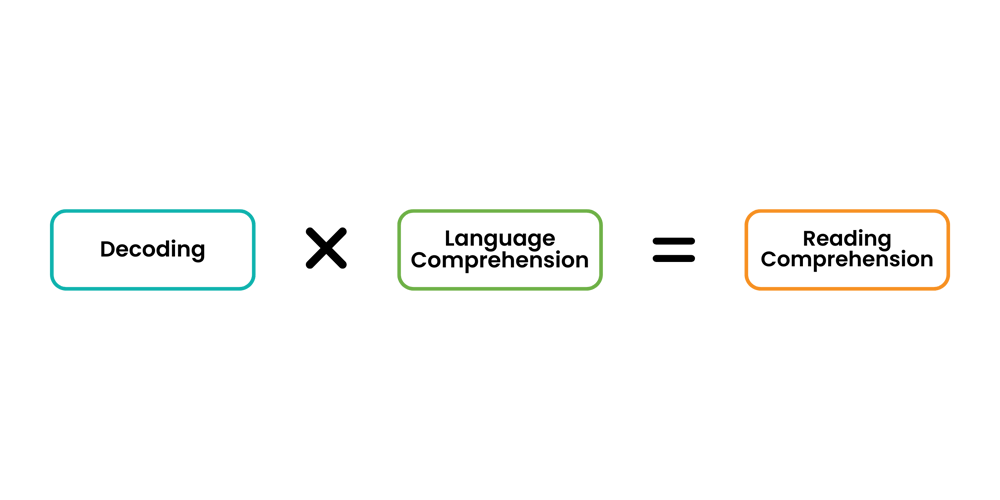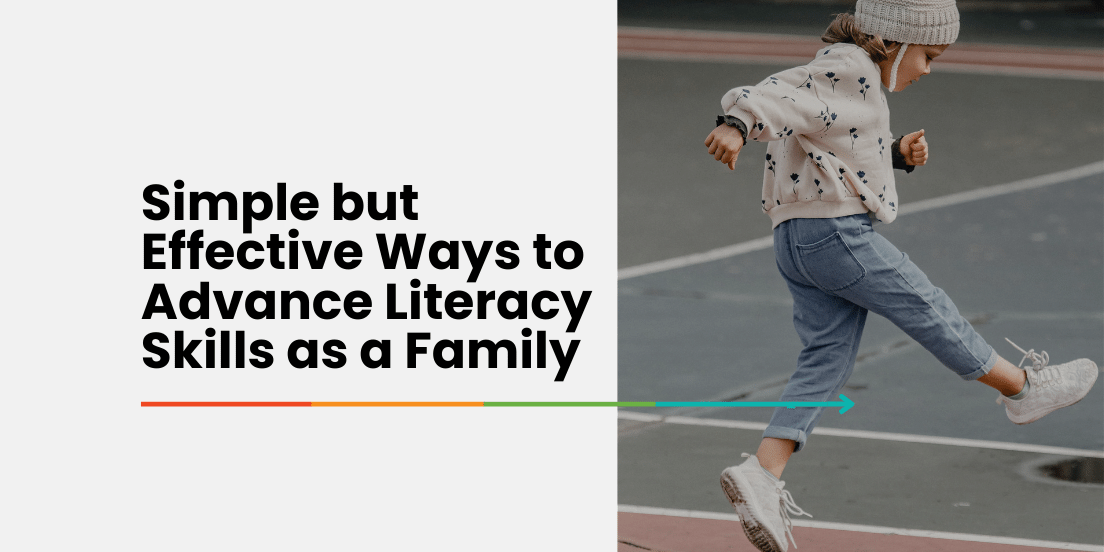Literacy at Home
February is “I Love to Read” month. A month dedicated to promoting a love of reading. Administrators, educators, and literacy experts agree that reading is foundational to long-term academic success and well-being of a child.
Parents can strengthen their child’s reading skills by learning about the Science of Reading and integrating it into their daily activities.
What is the Science of Reading?
The Science of Reading (SoR) is an evidence-based approach to developing key literacy skills for children. This approach to reading, also referenced as a structured literacy approach, is backed with research and scientifically validated techniques. The Simple View of Reading (Gough & Turner, 1986) formula says that “decoding x language comprehension = reading comprehension.”
Decoding is a child’s ability to look at letters and words on a page and be able to turn them into speech. Language comprehension is a child’s ability to understand the meaning of words/speech. Research shows that children who learn to read using methods that target phonological awareness and systematic phonics will set a child up to be able to read and comprehend texts successfully.
Easy Ways You can Integrate the Science of Reading Techniques 
The Science of Reading might sound complicated but in reality, there are several ways that parents can practice these literacy strategies at home even on a busy schedule:
1. Rhyming Groups
- Ex: Name all the words that rhyme with "hat"
2. Rhyming Games
- Ex: "I'm thinking of an animal that rhymes with dog..."
3. Ask your child what letter represents a particular sound.
- Ex: "What letter represents the /a/ sound?"
4. Segment words to build phonemic awareness.
- Ex: Say the word "cat" then break it up by each letter sound. Ask how many sounds the word has (3) and say the word together again.
5. Select books to read together that would be too difficult for your child to read alone. Discuss the vocabulary words in the book and what they mean.
6. Use high-level vocabulary words daily at home.
- Ex: Instead of saying "it's time to clean up", try saying "it's time to tidy up."
1:1 Tutoring Aligned with Structured Literacy Can Help
Hoot Reading is proud to deliver flexible 1:1 tutoring that is aligned with a structured literacy approach. Students who participate in our 1:1 tutoring experience significant gains in reading skills and confidence.
Our library has over 2,000 titles, including decodables that strengthen decoding and language comprehension skills; which have been specifically curated for quality with an eye toward diversity & inclusion. These decodable books contain strategically sequenced letter/sound combinations, with colourful visuals, to develop children’s phonemic awareness, phonological awareness, and vocabulary skills.
Learn more about our programs, and experience the Science of Reading in action through Hoot Reading.




